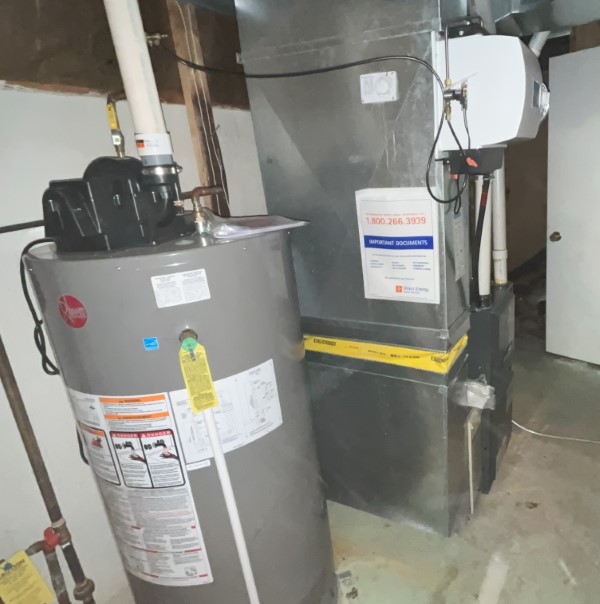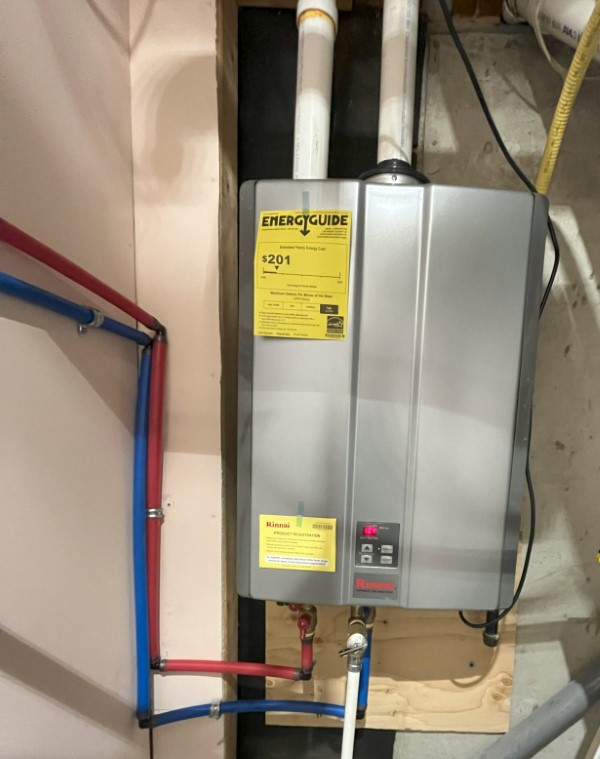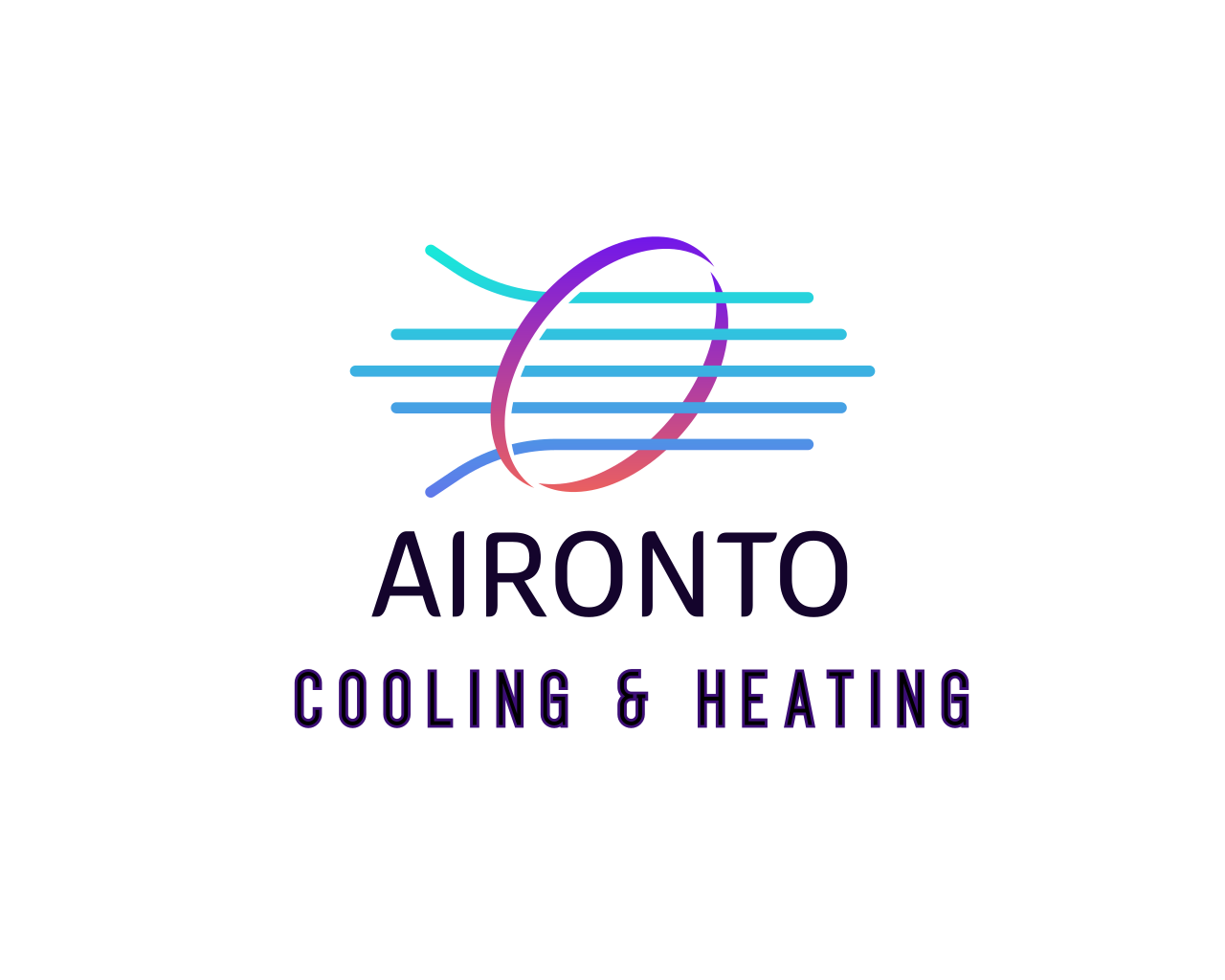Water Heaters
In a standard gas water heater with a storage tank, cold water enters the tank through the dip tube, where it’s warmed by a heating element. The hot water rises to the top of the tank and is taken by the heat-out pipe and delivered to the pipes that deliver hot water to the faucets and appliances around the home. The heating elements are controlled by a thermostat that keeps the water in the tank at a relatively constant temperature so it’s always ready. There are several types of water heaters:
Storage Tank Water Heater
The storage tank water heater is the most common type.
Depending on fuel options in your area, you can get one heated by natural gas, propane or electricity. You also have a wide range of capacity options, from 20 to 80 gallons.
There are two main types of tank water heaters, Power Vented (PV) and Conventional Vented (CV). The main difference between the two is that CVs vent the exhaust naturally up through the chimney, whereas PVs use a blower motor to vent the exhaust to the side of the house, usually in the alleyway between houses.
Storage tank water heaters are usually less expensive than other types of water heaters and are reliable, requiring little maintenance or upkeep.
However, no matter how well-insulated, the water in the tank eventually loses heat and must be reheated repeatedly, even if no one’s using it. If your tank isn’t big enough for your needs, you might use hot water faster than it can be heated, leaving you with no hot water. Tank water heater is bulky; it takes up space in the basement and requires 24 inches of clearance for the air intake.


Tankless Water Heater
A tankless water heater, doesn’t store hot water in a tank. Instead, the water is heated only as it’s needed.
Tankless heaters are more efficient than storage tank water heaters and will never run out of hot water. It is very space efficient and can be installed in very compact areas.
Tankless heaters are usually more expensive to rent or purchase than storage tank models. They can provide only a limited flow rate of hot water. The ground water temperature affects how hot the water can get, so during the winter your water may not be as hot as you’d like it to be. If you live in a hard water area, you may also require a water softener to extend the life of the unit. Regular flushing may be needed every 5 years or so to prevent calcium build up.

